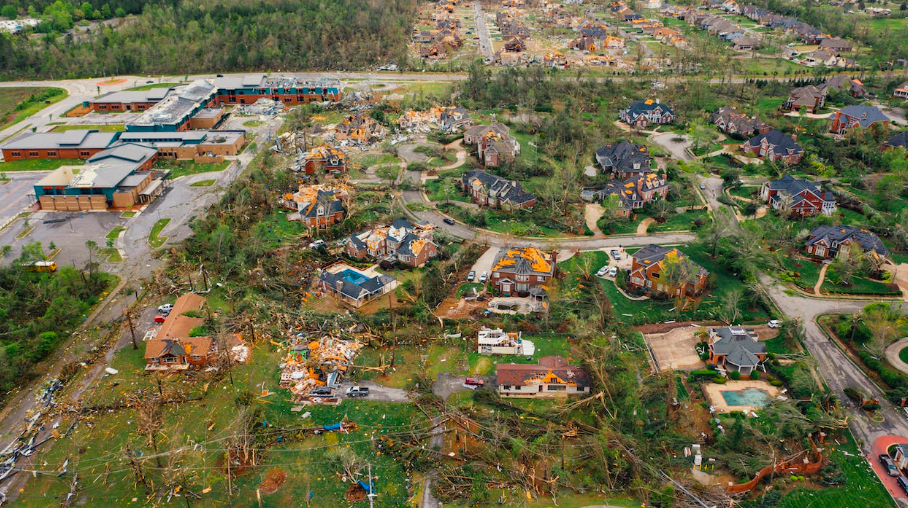As a resident of New Jersey, you know that the state experiences its fair share of severe weather conditions, including storms. These storms can bring heavy rain, strong winds, and even flooding, which can cause significant damage to your property.
Preparing your home beforehand can help minimize the risks and keep your family and property safe during the storm. Here are some tips on how to prepare your New Jersey home for a storm.
Check Your Home’s Exterior
The first thing you need to do is to check the exterior of your home. Walk around your property and inspect your roof, siding, gutters, and downspouts for any signs of damage. Ensure that your roof is in good condition, and there are no loose shingles or tiles. If you find any damage, make sure to have it repaired before the storm arrives.
Trim any tree branches that might fall onto your house during the storm. High winds can cause branches to break and fall, causing significant damage to your property. If you have large trees near your home, consider hiring a professional tree service to trim and remove any hazardous branches.
Secure loose objects like outdoor furniture, toys, and gardening equipment. These items can become projectiles during high winds and cause damage to your property or even injure someone. If possible, store these items inside your home or garage until the storm passes.
Remove any debris from your yard and gutters to avoid blockage that can lead to flooding. Clogged gutters can cause water to back up and overflow, causing water damage to your home’s foundation, roof, or walls. Ensure that your gutters and downspouts are clear and free-flowing.
Inspect Your Doors and Windows
Check the seals around your doors and windows to ensure they are tight. If you notice any gaps, caulk them to prevent water from entering your home. If you live in an area prone to flooding, consider installing flood-resistant doors and windows. These products are designed to keep water out of your home even during severe flooding.
You can also use storm shutters to protect your windows during high winds. Storm shutters are designed to prevent windows from shattering during the storm, keeping your home and family safe. There are many different types of storm shutters available, from permanent to temporary, so you can choose the one that best suits your needs and budget.
Stock Up on Emergency Supplies
In the event of a storm, you may lose power or access to clean water. It’s essential to stock up on emergency supplies like bottled water, non-perishable food, flashlights, batteries, and a first aid kit. You can also consider purchasing a generator to provide backup power.
If you have a well, consider having a backup generator that can run your well pump, so you still have access to water during a power outage. Make sure you have enough supplies to last for at least three days, as it may take some time for utilities to be restored after the storm.
Know Your Evacuation Routes
If you live in a coastal area, you may be required to evacuate your home during a storm. Make sure you know your evacuation routes and plan accordingly. Keep important documents like insurance policies, passports, and birth certificates in a waterproof container that you can easily grab if you need to evacuate.
If you have pets, make sure you have a plan for them as well. Many shelters do not allow pets, so you may need to make other arrangements. Have a pet carrier, food, water, and any necessary medication ready to go. Identify a safe place to take your pets, like a pet-friendly hotel or a friend or family member’s home.
Have a Plan for Your Family
Create a family emergency plan and make sure everyone in your household knows what to do in case of a storm. Designate a safe room in your home where you can all gather during the storm. This room should be in the interior of your home, away from windows and doors.
Make sure everyone in your family knows how to turn off the gas, electricity, and water in your home in case of an emergency. You may need to turn off these utilities if there is a gas leak, electrical short, or water main break.
If you have elderly or disabled family members, make sure you have a plan to help them during a storm. They may need extra assistance getting to a safe room or evacuating your home.
Stay Informed
Stay informed about the storm’s progress by monitoring the news and weather reports. Sign up for emergency alerts from your local authorities to receive updates on evacuation orders or road closures. Consider purchasing a weather radio to stay informed if you lose power or internet access.
If you are in an area prone to flooding, monitor river levels and be prepared to evacuate if necessary. Pay attention to flash flood warnings and do not drive through flooded areas.
After the Storm
Once the storm has passed, take the time to inspect your home for any damage. Check your roof, siding, gutters, and windows for any signs of damage. If you find any damage, make sure to have it repaired as soon as possible to prevent further damage from occurring.
If your home has been flooded, make sure to have it inspected for mold and other issues. Mold can grow quickly in damp areas, and it can cause health problems for you and your family.
Contact your insurance company to file a claim for any storm damage. Take pictures of any damage to your property and make a list of damaged items to provide to your insurance adjuster.
Preparing your New Jersey home for a storm involves a few simple steps, but they can make a big difference in keeping your family and property safe during severe weather.
Check your home’s exterior, inspect your doors and windows, stock up on emergency supplies, know your evacuation routes, have a plan for your family and pets, stay informed, and inspect your home after the storm. By following these tips, you can help protect your home and family during a storm.



 (908) 588-9575
(908) 588-9575
